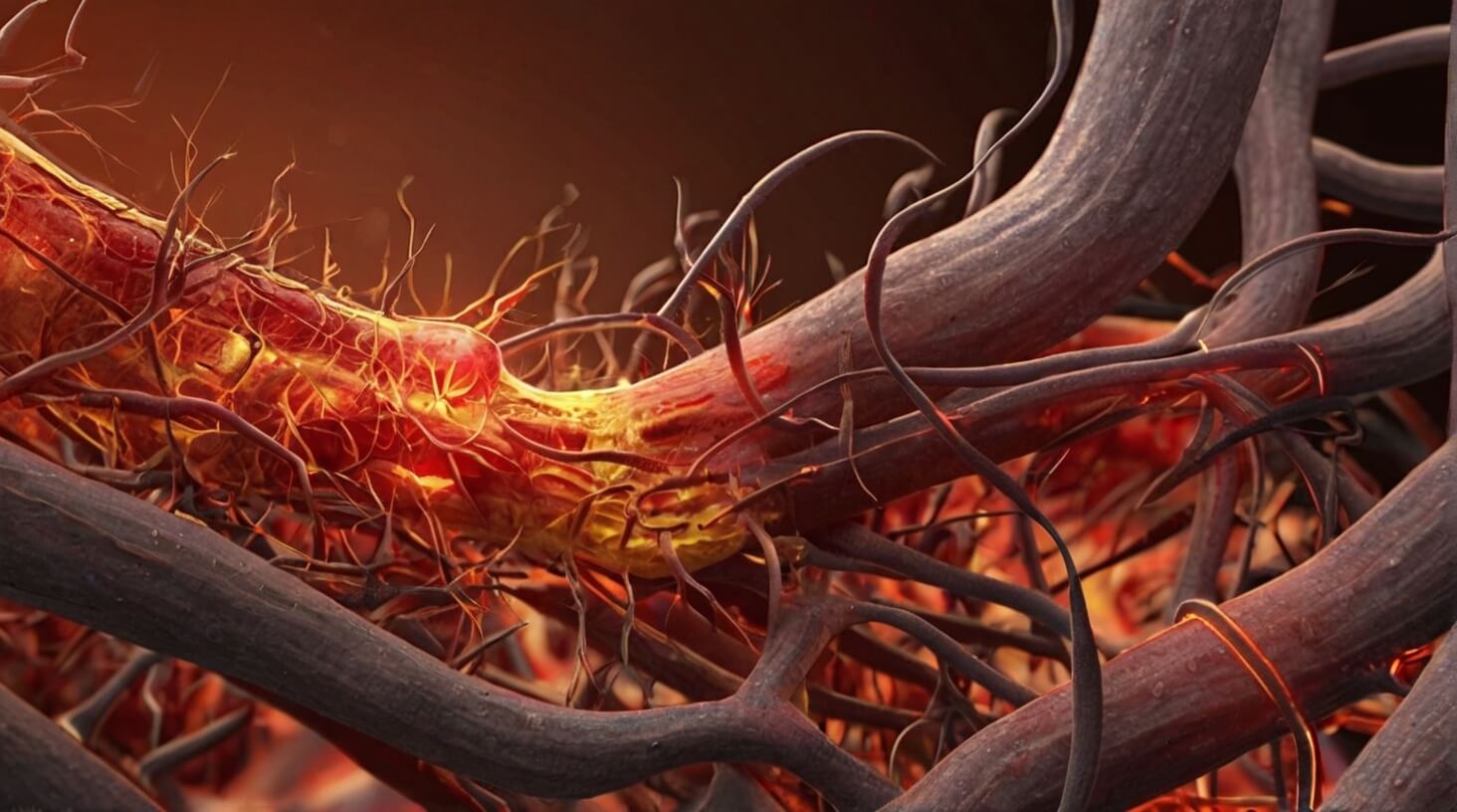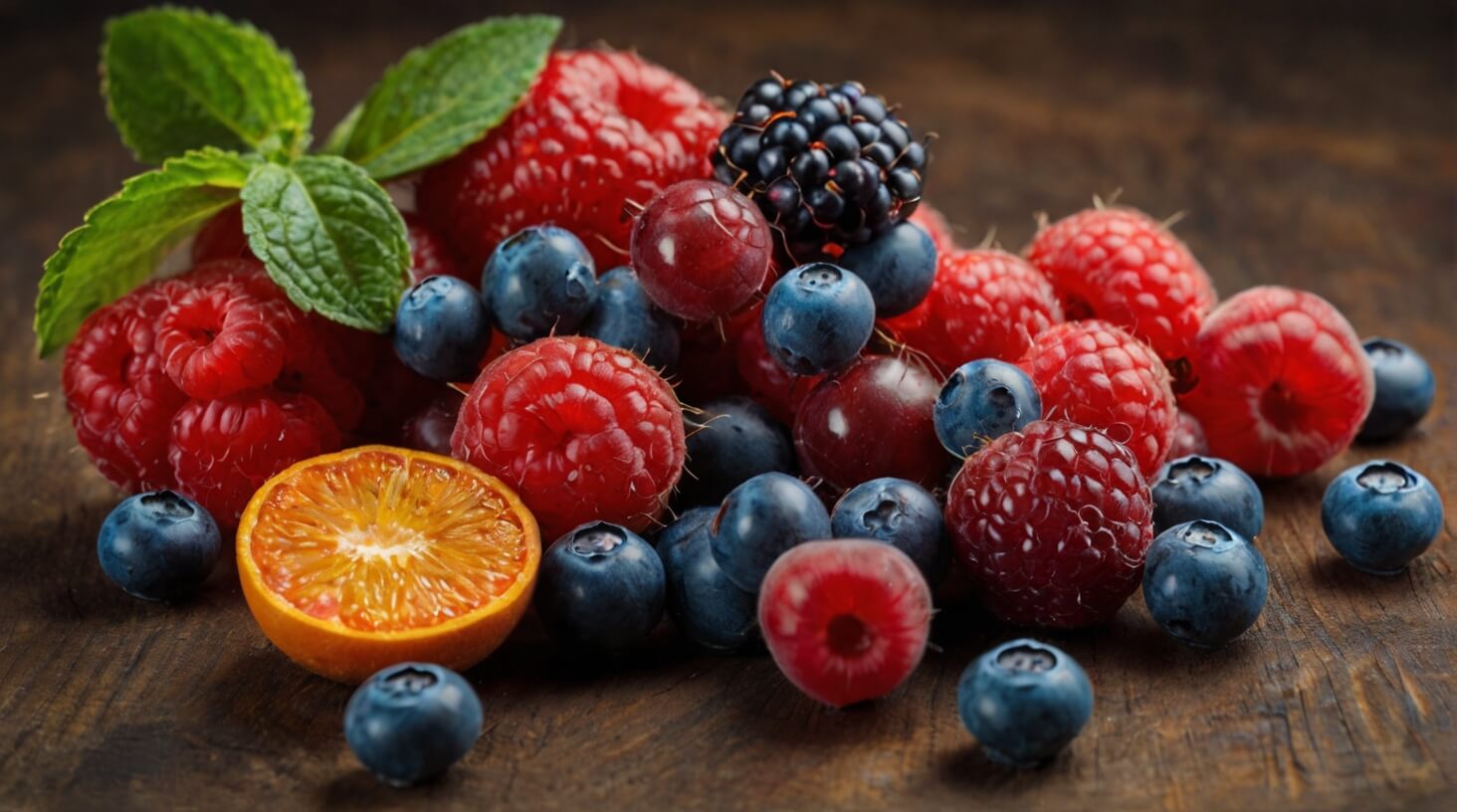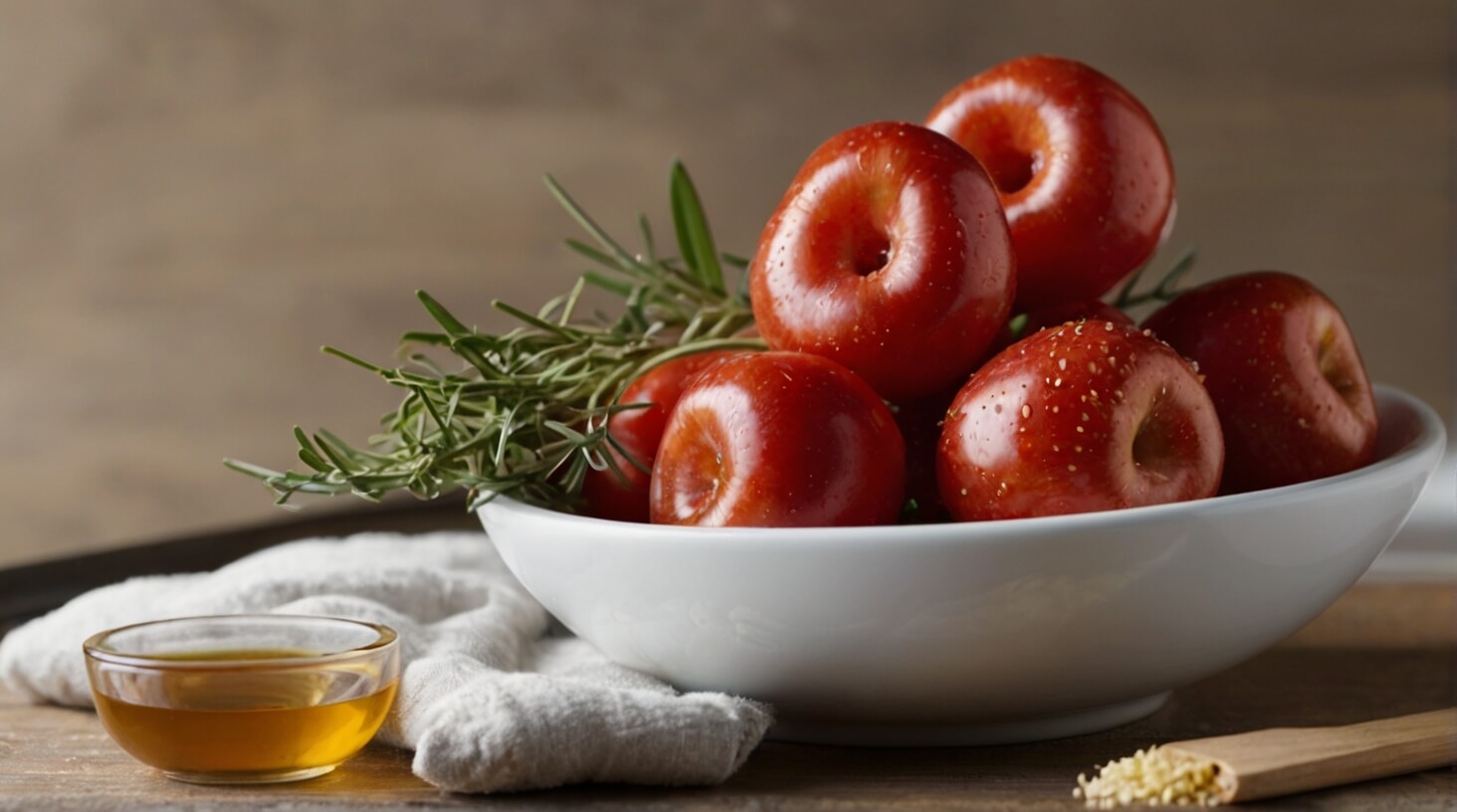You’ve likely heard that antioxidants are crucial for maintaining good health, but you might wonder how much truth there is to their reputed anti-inflammatory effects. These compounds, both naturally occurring within your body and supplemented through your diet, have been shown to neutralize the free radicals that contribute to inflammation—a key player in many chronic diseases. It’s not just about eating a few extra berries or downing a vitamin pill; the interplay between antioxidants and inflammation is complex, involving gene regulation and the intricate signaling pathways of your immune system. As you consider how these microscopic defenders could be influencing your body’s response to inflammation, you’ll find there’s more to uncover about how the inclusion of antioxidants in your lifestyle could be a game changer for your health.
Key Takeaways
- Inflammation is a natural defense mechanism, but chronic inflammation can lead to various health issues.
- Free radicals contribute to tissue damage and inflammation, while antioxidants neutralize free radicals and reduce oxidative stress.
- The balance between free radicals and antioxidants is important for health, and antioxidants can potentially slow down the inflammatory process.
- Antioxidants can be obtained through a diet rich in fruits, vegetables, and nuts, and incorporating a diverse array of antioxidant-rich foods is essential for overall health.
Understanding Inflammation

Inflammation acts as your body’s natural defense mechanism against harmful invaders, but when it becomes chronic, it can pave the way for a myriad of health issues, including diabetes, cancer, and heart disease. The inflammatory process is complex, involving both acute and chronic phases. Acute inflammation is a short-term response that often results in redness, heat, swelling, and pain at the affected site. It is essential for healing. However, chronic inflammation persists over time and can silently damage tissues, contributing to the progression of various chronic diseases.
Your immune system plays a crucial role in initiating this response, with various cellular processes like phagocytosis and cell differentiation at play. The overproduction of proinflammatory cytokines, signaling molecules that mediate and regulate immunity, inflammation, and hematopoiesis, can lead to chronic inflammation. Reactive oxygen species (ROS) and free radicals generated during oxidative stress can exacerbate this condition by damaging cells and tissues.
Understanding the balance between free radicals and antioxidants in the body is vital. Antioxidants neutralize free radicals, thereby reducing oxidative stress and potentially slowing the inflammatory process. They can modulate signaling pathways, influencing the production of proinflammatory cytokines and other mediators of inflammation.
For those of you striving to serve others, recognizing the role of antioxidants in reducing inflammation is instrumental in developing therapeutic targets. By comprehending the intricacies of the inflammatory process, you’ll be better equipped to address the secondary consequences that elevate the risk of chronic health conditions. This knowledge is crucial for crafting strategies to combat the long-term effects of chronic inflammation on organ health and overall well-being.
Antioxidants Explained

Antioxidants serve as your body’s natural defenders, neutralizing free radicals to reduce oxidative stress and prevent cellular damage that can lead to inflammation. These antioxidants include a variety of molecules that react with free radicals, particularly reactive oxygen species (ROS), such as superoxide anion and hydrogen peroxide, transforming them into less harmful compounds.
You might wonder how these defenders work. Antioxidants donate an electron to free radicals without becoming reactive themselves. This effectively halts the chain of damage that these radicals can cause. Some antioxidants, like phenolic compounds, are known for their potent antioxidant properties, which can be particularly beneficial in reducing inflammation.
Incorporating a diet rich in antioxidants can be a powerful way to serve your body’s health. Foods like berries, leafy greens, and nuts are packed with these beneficial compounds. Here’s a snapshot of some key antioxidants and their sources:
| Antioxidant Type | Example | Dietary Sources |
|---|---|---|
| Enzymatic | Superoxide dismutase | Cruciferous vegetables |
| Non-enzymatic | Vitamin C | Citrus fruits |
| Phenolic Compounds | Flavonoids | Berries, tea |
| Carotenoids | Beta-carotene | Carrots, sweet potatoes |
| Minerals | Selenium | Brazil nuts, seafood |
Free Radicals and Inflammation
When your body’s cells engage in metabolic processes, they inadvertently produce free radicals, highly reactive molecules that can trigger a cascade of tissue damage and inflammation if left unchecked. These free radicals, or more specifically, the generation of reactive oxygen species (ROS) and reactive nitrogen species (RNS), are normal byproducts of cellular activities. Yet, their accumulation can lead to oxidative stress, which plays a significant role in the development of chronic inflammations associated with various diseases.
Oxidative stress arises from:
- An imbalance of natural antioxidants and free radicals
- The excessive production of ROS by inflammatory cells
- Environmental factors contributing to increased antioxidant demand
The inflammatory processes and cellular damage initiated by free radicals are complex. They involve:
- Activation of transcription factors, which regulate genes associated with inflammation
- The destruction of cell membranes and DNA, leading to further cell injury and inflammation
- The recruitment of more inflammatory cells, perpetuating the cycle
To counteract these effects, your body utilizes antioxidant activities through:
- Natural antioxidants, such as vitamins C and E, which directly neutralize free radicals
- Enzymatic systems, like superoxide dismutase and glutathione peroxidase, that convert reactive species into less harmful molecules
- Synthetic antioxidants, which can supplement the body’s defenses when natural levels are insufficient
Your role in supporting individuals facing oxidative stress may involve:
- Educating about the importance of a diet rich in natural antioxidants
- Encouraging lifestyle changes that reduce the production of ROS
- Considering interventions that include synthetic antioxidants to restore balance
Antioxidant Sources
To bolster your body’s defenses against oxidative stress, incorporating a diverse array of foods rich in antioxidants is essential. These natural compounds are your allies in the fight against the damaging effects of free radicals on your vital cellular components. By including foods with high antioxidant compounds in your daily diet, you’re equipping your body with the tools it needs to reduce inflammation and protect against chronic diseases.
Fruits like berries, citrus, and apples are treasure troves of flavonoids and phenolic acids, two types of powerful antioxidants. Similarly, vegetables such as spinach, kale, and broccoli are packed with these active compounds that can help modulate inflammatory cells and support your overall health.
For those of you who are nuts about nuts, almonds, sunflower seeds, and walnuts offer a tasty and nutritious way to boost your intake of antioxidants. Moreover, indulging in some dark chocolate or sipping on green tea can be both a delightful and healthful habit, thanks to their rich antioxidant content.
Exploring the world of spices, you’ll find that cinnamon and turmeric are not just culinary delights but also potent sources of bioactive extracts used in herbal medicine. These spices, alongside other herbs, contribute a significant quantity of antioxidants to your diet.
Here’s a quick reference table for you to remember some of the best sources of antioxidants:
| Food Category | Examples |
|---|---|
| Fruits | Berries, Citrus fruits, Apples |
| Vegetables | Spinach, Kale, Broccoli |
| Nuts & Seeds | Almonds, Sunflower seeds, Walnuts |
| Others | Green tea, Dark chocolate, Cinnamon, Turmeric |
In your quest to serve and nourish others, don’t forget that a diet rich in these antioxidants is a cornerstone for maintaining health and preventing inflammation. Keep these foods in mind as you plan meals that are not only delicious but also deeply nurturing.
Inflammation and Diet

Understanding the sources of antioxidants paves the way for grasping how dietary choices directly influence the body’s inflammatory processes. You’re not just feeding yourself; you’re equipping your immune system with what it needs for proper functioning. Chronic inflammation is a silent threat that can lead to a multitude of chronic diseases, and your diet has a powerful role in managing this risk.
- Inflammatory Responses:
- Acute inflammation is a necessary defense mechanism.
- Chronic inflammation, however, is linked to diseases like arthritis, diabetes, and heart conditions.
The balance between free radicals and antioxidants is crucial. Oxidative stress, resulting from an excess of reactive oxygen species (ROS), triggers inflammation associated with cellular damage. By incorporating dietary antioxidants into your meal plan, you help neutralize these harmful free radicals.
- Dietary Antioxidants:
- Come from a variety of natural sources of antioxidants.
- Include vitamins A, C, E, and minerals like selenium and zinc.
Foods rich in these nutrients exhibit anti-inflammatory effects that can dampen chronic inflammation. For instance, brightly colored fruits and vegetables, whole grains, nuts, and seeds are powerhouse sources.
- Anti-Inflammatory Effects:
- Dietary antioxidants can modulate immune responses.
- They may reduce the severity and duration of inflammation.
As someone committed to the well-being of others, understanding the impact of diet on inflammation empowers you to make informed choices. Fresh, unprocessed foods are allies in this fight, reducing inflammation and promoting health. By guiding those you serve towards these choices, you’re supporting their journey to a life less burdened by the threat of inflammation and chronic diseases.
Antioxidant Mechanisms
Delving into the mechanisms of antioxidants reveals how these vital substances intercept and neutralize free radicals, thereby playing a key role in reducing cellular inflammation. Antioxidants such as vitamins C and E, polyphenols, and flavonoids offer protection by donating an electron to the unstable free radicals, which are often a byproduct of the mitochondrial respiratory chain. This process stabilizes the radicals and prevents them from causing oxidative harm to lipids, proteins, and DNA within your cells.
These compounds also have an inhibitory effect on enzymes like inducible nitric oxide synthase (iNOS), which generates reactive nitrogen species implicated in inflammatory processes. By curbing the activity of iNOS, antioxidants reduce the production of inflammatory mediators, thus tempering the body’s inflammatory response.
Moreover, antioxidants are known for their ability to modulate the signaling pathways that lead to the nuclear translocation of factors that activate genes involved in inflammation. This suppression of various inflammatory pathways further highlights the multifaceted role of antioxidant mechanisms in combating inflammation.
Here’s a table summarizing some key antioxidant mechanisms and their impact on inflammation:
| Mechanism | Target | Impact on Inflammation |
|---|---|---|
| Electron Donation | Free Radicals | Neutralizes and reduces oxidative damage |
| Enzyme Inhibition | iNOS, etc. | Decreases production of inflammatory mediators |
| Signaling Modulation | Nuclear Translocation | Suppresses activation of inflammatory genes |
Through these detailed mechanisms, antioxidants serve as a shield against the cascade of inflammatory events, offering hope and healing to those afflicted by inflammatory conditions. By understanding these pathways, you can better appreciate how incorporating antioxidant-rich foods into your diet may serve the greater good of reducing inflammation and promoting overall health.
Research Findings
Recent studies have confirmed that antioxidants are essential in mitigating the detrimental effects of oxidative stress, which is a precursor to inflammation and cellular damage. You’ve likely heard that inflammation has become a focal point in the medical community due to its role in numerous diseases. Research has illuminated the potential of medicinal plants and traditional Chinese medicines, rich in antioxidants, in the suppression of various chronic inflammatory diseases.
Here’s how antioxidants are making strides in research:
- Potential of Medicinal Plants
- Investigation research areas among natural compounds reveal that some plants can inhibit the classical pathway of complement, a critical mechanism in chronic inflammatory responses.
- Certain medicinal plants have shown promise in reducing cardiovascular diseases, a group of disorders that are often exacerbated by inflammation.
- Traditional Chinese Medicines
- These ancient remedies contain a plethora of compounds that have been studied for their effects on inflammation-stimulated cells.
- Their complex mixtures might offer multi-targeted therapeutic benefits, tackling various inflammatory pathways simultaneously.
- Mechanisms in Chronic Inflammatory Diseases
- The anti-inflammatory effects of antioxidants can be attributed to several mechanisms, including neutralizing free radicals and modulating inflammatory cell signaling.
- Research is revealing that these mechanisms play a crucial role in reducing the symptoms and progression of chronic diseases.
As you delve into the world of antioxidants, remember that it’s not just about quelling temporary discomforts; it’s about understanding the leads to various inflammatory conditions and addressing them at their root. Your dedication to serving others is supported by the continuous exploration of how natural compounds can potentially transform the landscape of chronic disease management.
Lifestyle and Prevention
While exploring the impact of antioxidants on chronic inflammation, it’s equally important to consider how daily lifestyle choices, such as diet and exercise, play a pivotal role in preventing and managing inflammation-related conditions. You’ve likely heard that a balanced diet rich in fruits, vegetables, and whole grains is beneficial, and here’s why: these food items are natural sources of antioxidants, which are vital in combating oxidative stress and subsequently reducing chronic inflammations.
Engaging in regular exercise and physical activity isn’t just about keeping fit; it also enhances your innate immune responses and has anti-inflammatory effects. Preclinical studies suggest that the anti-inflammatory action from exercise helps to modulate the immune system and prevent the onset of chronic diseases associated with inflammation.
Adequate sleep and effective stress management go hand in hand with a healthy lifestyle. They’re crucial in preventing the exacerbation of inflammation and maintaining overall well-being. As someone who aims to serve others, understanding and sharing the importance of these lifestyle factors is paramount.
Moreover, you should be aware that certain habits, such as smoking and excessive alcohol consumption, can significantly increase oxidative stress and inflammation in the body. Steering clear of these detrimental habits can aid in maintaining a balanced inflammatory response.











